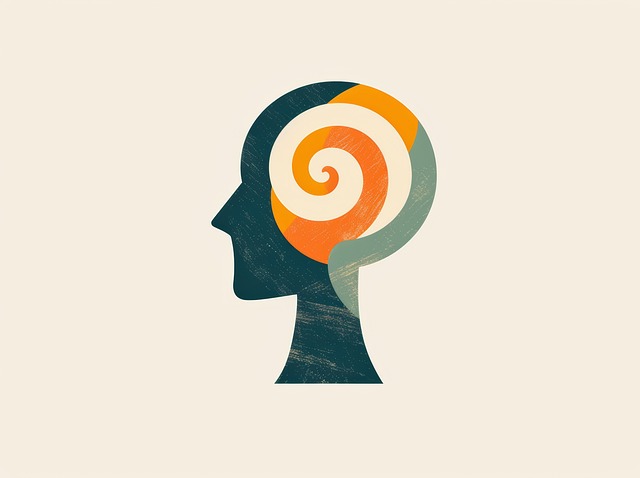Mental wellness, a holistic state of emotional, psychological, and social well-being, can be improved through Littleton Cognitive Behavioral Therapy (LCBT), which targets negative thought patterns. Journaling exercises complement LCBT by fostering introspection and reflection, aiding in progress tracking, goal setting, and coping strategy application. Journal setup, with tools ranging from notebooks to digital documents, should support personal needs and include prompts for guided reflection, such as gratitude or reframing challenges. Integrating Compassion Cultivation Practices enhances self-compassion and resilience. LCBT principles within journaling entries help identify cognitive distortions, reduce stress, and improve emotional well-being. Regular reflection enables progress tracking, celebrating successes, and recalibrating mindsets after setbacks.
“Unwind your mind and embark on a journey of self-discovery with mental wellness journaling. In today’s fast-paced world, prioritizing cognitive health is paramount. This article guides you through the transformative power of journaling as a therapeutic tool, specifically exploring its synergy with Littleton Cognitive Behavioral Therapy (L CBT).
From understanding mental wellness to setting up your personalized journal and tracking progress, we’ll navigate strategies that help you integrate L CBT into daily routines, fostering improved cognitive well-being.”
- Understanding Mental Wellness and Its Impact
- The Power of Journaling for Cognitive Behavioral Therapy
- Setting Up Your Journal: Tools and Techniques
- Incorporating Littleton Cognitive Behavioral Therapy into Your Routine
- Tracking Progress and Celebrating Successes
Understanding Mental Wellness and Its Impact

Mental wellness encompasses our emotional, psychological, and social well-being. It affects how we think, feel, and act in various aspects of daily life, including relationships, work, and overall quality of life. Understanding mental wellness is crucial because it influences our ability to cope with stress, make choices, and pursue goals. When our mental wellness suffers, we may experience symptoms like anxiety, depression, or low self-esteem, which can significantly impact our functioning and happiness.
Littleton Cognitive Behavioral Therapy (CBT) is a highly effective approach to addressing mental health challenges. CBT helps individuals identify and change negative thought patterns and behaviors contributing to distress. By focusing on the connection between thoughts, feelings, and actions, CBT empowers people to manage symptoms of anxiety and depression, boost self-esteem improvement, and cultivate healthier coping strategies. Incorporating regular Mental Wellness Journaling Exercise Guidance can complement therapy, providing a space for introspectiveness and reflection, ultimately enhancing the benefits of treatment.
The Power of Journaling for Cognitive Behavioral Therapy

Journaling has emerged as a powerful tool within the realm of Cognitive Behavioral Therapy (CBT), offering individuals an effective means to explore and understand their thoughts, emotions, and behaviors. This simple yet profound practice allows for self-reflection and introspection, enabling folks to gain insights into their mental health journeys. By documenting experiences and feelings in a private space, individuals can identify patterns, challenge negative thought processes, and foster positive changes.
In the context of Littleton Cognitive Behavioral Therapy, journaling serves as a valuable adjunct therapy tool. It helps clients track progress, set achievable goals, and apply learned coping strategies to real-life situations. This process encourages self-awareness and promotes mental health education programs design that are tailored to individual needs. Moreover, it can serve as a trauma support service by helping individuals process and overcome past traumas, ultimately enhancing their ability to manage stress and cultivate resilience using mind over matter principles.
Setting Up Your Journal: Tools and Techniques

Setting up your journal is a vital step in embarking on a journey of self-discovery and mental wellness. Consider it as cultivating a personal tapestry where your thoughts, feelings, and experiences intertwine to reveal insights about yourself. In terms of tools, a simple notebook or a digital document will suffice. The key lies in finding what works best for you—whether it’s lined paper that offers a structured space for writing, or unbound pages that allow for more flexibility and creativity. Incorporate techniques like setting specific themes or prompts to guide your reflection. For instance, you might begin each entry with a question like “What am I grateful for today?” or “What challenges did I face and how can I reframe them?”. This approach, reminiscent of the principles behind Littleton Cognitive Behavioral Therapy, helps in cultivating awareness and promoting positive thinking patterns. Furthermore, integrating Compassion Cultivation Practices into your journaling routine can enhance self-compassion and resilience, fostering a deeper sense of mental well-being. Remember that public awareness campaigns for Mental Health Awareness can also inspire you to make journaling a consistent practice.
Incorporating Littleton Cognitive Behavioral Therapy into Your Routine

Incorporating Littleton Cognitive Behavioral Therapy (LCBT) into your mental wellness journaling routine can be a powerful tool for self-improvement and emotional well-being. LCBT focuses on identifying and changing negative thought patterns and behaviors, promoting healthier ways of thinking and reacting to stressful situations. By integrating this therapy’s principles into your journal entries, you can gain deeper insights into your thoughts and emotions.
This approach encourages individuals to challenge cognitive distortions, a key aspect of LCBT, which often contribute to heightened stress and anxiety. Through regular reflection and analysis in your journal, you can develop an increased awareness of these patterns. This heightened awareness is the first step towards managing stress effectively and fostering resilience. Additionally, considering cultural sensitivity in mental healthcare practice, as emphasized by many organizations offering Stress Management Workshops, LCBT provides a framework that respects diverse perspectives while offering practical strategies for navigating crises, as outlined in crisis intervention guidance.
Tracking Progress and Celebrating Successes

Over time, mental wellness journaling becomes a powerful tool for tracking your progress and celebrating successes along your therapy journey. By regularly reviewing your entries, you can identify patterns in your thoughts and behaviors, gain valuable insights into your emotional well-being, and recognize how far you’ve come with the help of Littleton Cognitive Behavioral Therapy (LCBT) techniques. This reflection allows you to celebrate small victories, recalibrate your mindset when facing setbacks, and cultivate a sense of accomplishment that reinforces positive change.
As you engage in this practice, consider incorporating specific LCBT principles into your journaling routine. Reflect on any cognitive distortions or irrational thoughts that have surfaced and how challenging them has impacted your outlook. Document the coping strategies and empathy-building techniques suggested by your Mental Wellness Coaching Programs Development that have proven effective. This process not only aids in stress management but also fosters a deeper understanding of yourself, empowering you to continue navigating life’s challenges with resilience and adaptability.
Mental wellness journaling is a powerful tool that combines the benefits of self-reflection with the transformative potential of Littleton Cognitive Behavioral Therapy. By setting aside time each day to record thoughts, emotions, and experiences, individuals can gain valuable insights into their mental health trajectory, identify negative thought patterns, and cultivate healthier coping mechanisms. Through consistent practice, this simple yet profound exercise fosters personal growth, enhances self-awareness, and empowers individuals to take proactive steps towards a happier, more fulfilling life.














